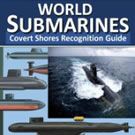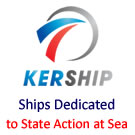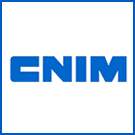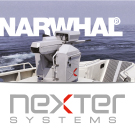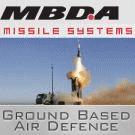| |
||||||
| a | ||||||
LIMA
2015 Online Show Daily - LCS NSM |
||||||
Exclusive:
Boustead Confirms NSM for the Future Gowind class LCS of the Royal Malaysian
Navy |
||||||
On
day 2 of the Langkawi International Maritime & Aerospace exhibition,
LIMA 2015, currently held in Malaysia, Navy Recognition met
with Anuar Murad, Director of the Defence & Security Division at
Boustead Heavy Industries Corporation Berhad (BHIC). During our interview,
Mr Anuar gave us the latest update on the program and confirmed Malaysia's
intend to procure Kongsberg's Naval Strike Missile (NSM) for its future
frigates. |
||||||
 The Boustead stand at LIMA 2015 features two scale models showing the updated & latest Gowind class LCS Frigate design. |
||||||
“We
are now approaching the end of basic design phase two. We have integrated
the systems and equipment into the main whole warship design. We have
two more combat system equipments that we have not been able to finalize.
For the platform systems equipment, we do have all the major ones already
in contract and gone through the design review” said Murad
Anuar. Asked about the anti-ship missile capability of the future RMN LCS, Mr Anuar told exclusively to Navy Recognition: “This is one equipment that has been changed as decided by the Government of Malaysia. We have finished the negotiations with Kongsberg Defense Aerospace and we will soon get into contract with Kongsberg for the Naval Strike Missile”. |
||||||
 The
Gowind model on display at LIMA 2015 features square anti-ship launchers
similar to NSM launchers. The
Gowind model on display at LIMA 2015 features square anti-ship launchers
similar to NSM launchers. |
||||||
|
Based
on the DCNS Gowind 2500 corvette design, the Royal Malaysian Navy future
Littoral Combat Ships (LCS) will be slightly larger and thus classified
as frigates. The basic specifications of the vessel have not changed
compared to what was announced at LIMA 2013 with a length of 111 meters
and a displacement of 3,100 tons. First ship of the class is set to
be floated out and lowered in the water via a platform in December of
2018. The new scale models of the vessels on display during LIMA 2015 showed the following information: Length overall: 111.00 m Length waterline: 105.00 m Beam Main Deck (1st Deck): 16.00 m Beam design waterline: 14.20 m Depth 1st deck: 8.30 m Design draught: 3.85 m Propulsion: CODAD Maximum Speed: 28 knots Survivability: Sea State 9  Royal Malaysian
Navy LCS combat system integration
Royal Malaysian
Navy LCS combat system integration In addition a shore integration facility is being built in Cyberjaya (south of capital city Kuala Lumpur). The combat system will be assembled there and some of the training will also be provided at this location. |
|
Video Interview with Mr Anuar during LIMA 2015 |
||||||
| It
was confirmed during LIMA
2013 that the combat management system will be the SETIS by DCNS,
the Fire Control Systems will be provided by Rheinmetall, the engines
will be provided by MTU and that the main gun will be the BAE Systems
57mm Mk 3 with stealth cupola. MSI will provide its Seahawk 30mm REMSIG.
Thales will supply the Smart-S Mk2 radar and CAPTAS-2 towed array sonar.
The decoy system will be the SuperBarricade by Wallop/Esterline. Finally,
the vessels will feature two J+S Marine triple torpedo launchers. The surface to air missiles have yet officially announced but should in all likelyhood be MBDA's VL MICA.  NSM full
scale model on Kongsberg stand at LIMA 2015
NSM full
scale model on Kongsberg stand at LIMA 2015 Integration of this new anti-ship missile into the SETIS CMS should not be a problem for DCNS since the company has experience working on the Skjold class programme as the combat system design authority and co-supplier. The Royal Norwegian Navy Skjold class FPB are fitted with Kongsberg's NSM. Produced by Kongsberg, the Naval Strike Missile (NSM) is an autonomous, long-range, precision missile designed to engage high-value, well-defended targets at sea and ashore. According to Kongsberg, The NSM is the only 5th generation long range precision strike missile in existence today. The missile combines unsurpassed penetration capability due to “low observable” shape, super sea skim, high-G random maneuvers and I3R (intelligent imaging infra red) seeker with Autonomous Target Recognition (ATR) providing programmable hit-point and optimized fuze-setting |
||||||





